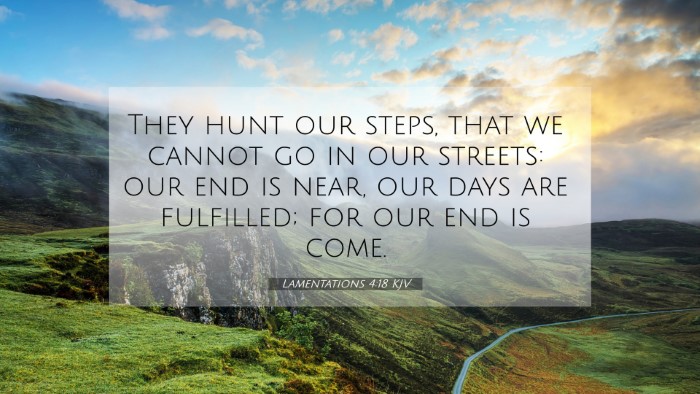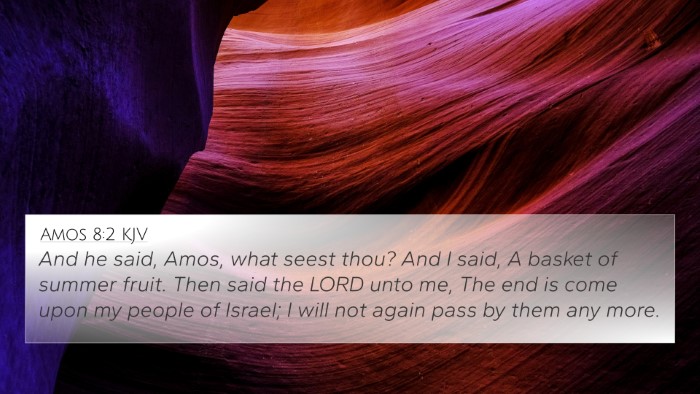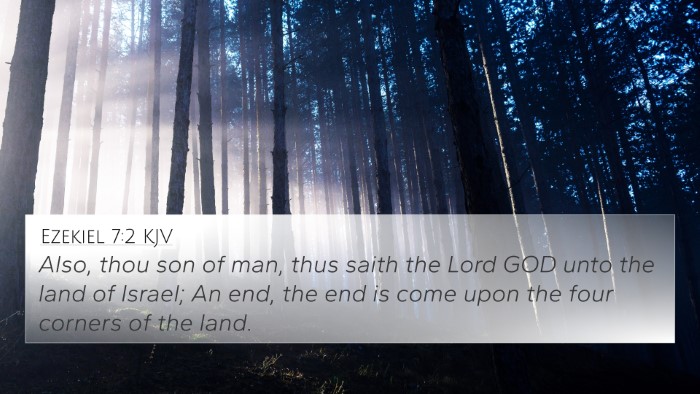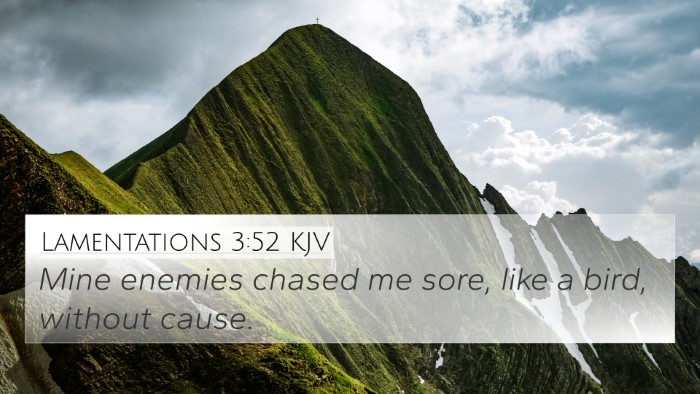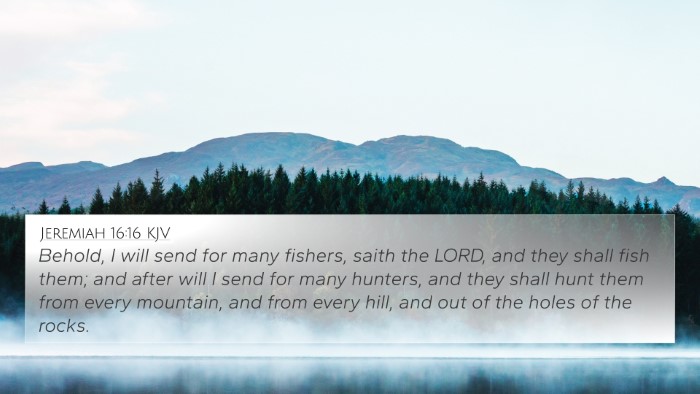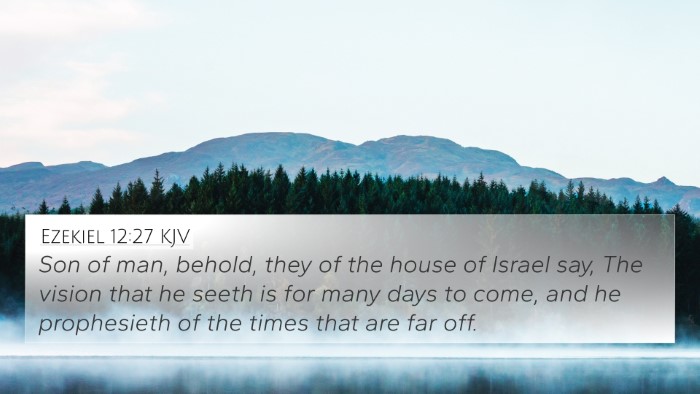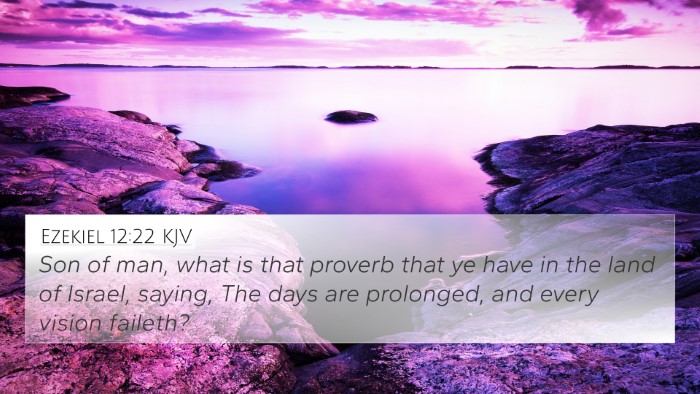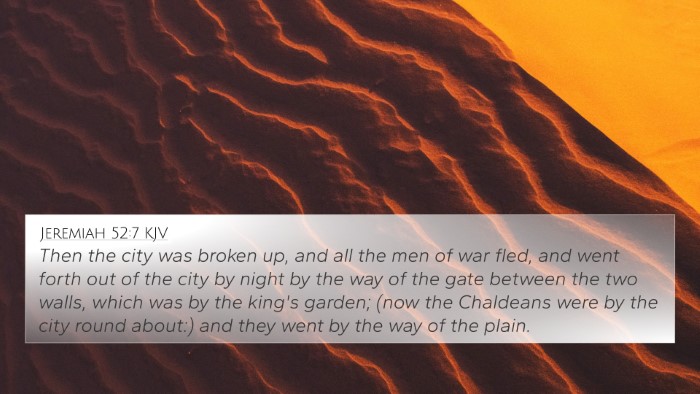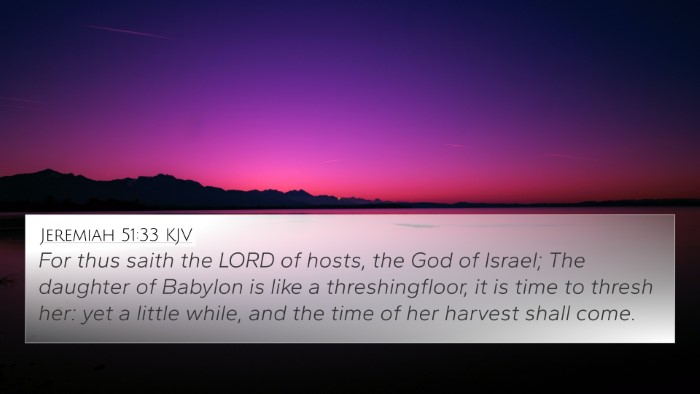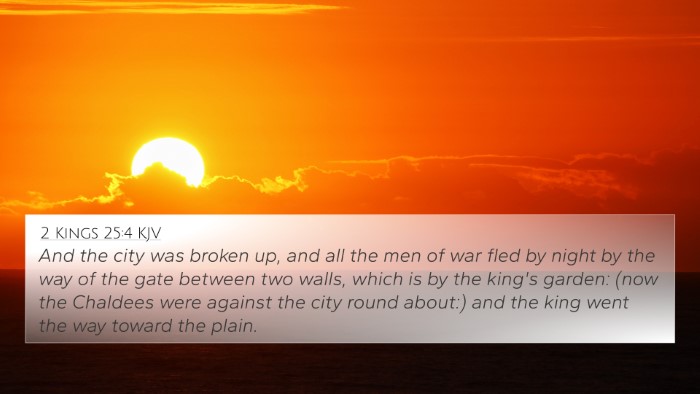Lamentations 4:18 - Verse Meaning and Interpretation
Lamentations 4:18 portrays a poignant picture of the plight of Jerusalem during the siege, emphasizing the intense suffering faced by its people. This verse reads:
"They hunted our steps, that we could not go in our streets: our end is near; our days are fulfilled; for our end is come."
This verse encapsulates the fear and hopelessness that enveloped the people of Jerusalem. Below is a summarized interpretation, combining insights from public domain commentaries including Matthew Henry, Albert Barnes, and Adam Clarke.
Verse Analysis
Contextual Overview
Lamentations, traditionally attributed to the prophet Jeremiah, is a series of poetic laments over the destruction of Jerusalem. In this particular verse, the metaphor of being hunted signifies the relentless oppression faced by the inhabitants.
Key Themes
- Hopelessness: The phrase "our end is near" suggests despair, highlighting the inevitability of destruction.
- Surveillance and Oppression: "They hunted our steps" indicates a feeling of being pursued and trapped, suggesting that the inhabitants have lost their freedom.
- Theological Reflection: This verse invites understanding of God’s judgment and the consequences of sin, making it relevant for discussions on divine justice.
Commentary Insights
Matthew Henry
Henry emphasizes the imagery of pursuit in this verse, expressing that the besieged feel as though their every movement is monitored by their enemies. He notes this reflects not just physical danger, but a deep psychological torment, symbolizing their spiritual desolation.
Albert Barnes
Barnes highlights the significance of the terms "hunted" and "streets." He posits that the streets, once vibrant and full of life, now symbolize a graveyard of hopes dashed—denoting a place where the living cannot even tread without fear.
Adam Clarke
Clarke discusses the implications of "our end is come." He interprets this as an acknowledgment from the people of Jerusalem, recognizing the totality of their calamity and the resultant distance from God that contributed to their demise.
Bible Cross References
This verse offers numerous connections across the canon of scripture. Here are some pertinent cross-references:
- Jeremiah 14:18: Highlights the state of Jerusalem's inhabitants during turbulent times.
- Micah 7:2: Speaks to the loss of faithful people and the overwhelming sense of despair.
- Psalm 143:3: Reflects on the enemy’s pursuit, echoing the sentiments of being hunted.
- Isaiah 59:7-8: Discusses the ways of the wicked, aligning with the themes of oppression in Lamentations.
- Deuteronomy 28:25: Warns about the consequences of disobedience, resonating with the overarching themes in Lamentations.
- Hebrews 10:31: A reminder of the seriousness of falling into the hands of the living God, connecting to the context of judgment.
- Psalm 38:12: The experience of being hunted and pursued theologically parallels the plight described in Lamentations.
- Job 19:5: Discusses feelings of betrayal and isolation, which can be related to the prevailing emotions in Lamentations 4:18.
- Lamentations 1:19: Expresses similar feelings of abandonment and the devastation felt in Jerusalem.
- 2 Kings 25:3-4: Details the siege of Jerusalem, effectively contextualizing the suffering described.
Thematic Connections
Understanding Lamentations 4:18 encourages deeper inquiry into themes of suffering, divine justice, and repentance throughout the scriptures. Through cross-referencing biblical texts, we can achieve a holistic understanding of how texts dialogue with one another:
- Utilizing a Bible concordance assists in identifying relevant verses that enhance comprehension of Lamentations' themes.
- The Bible cross-reference guide can facilitate a cross-reference Bible study, helping one uncover the larger narrative within scripture.
- Studying inter-Biblical dialogue allows for appreciation of patterns in human experience across different contexts - Old Testament to New Testament.
Conclusion
Lamentations 4:18 serves as a stark reminder of the consequences of straying from God and the suffering that can ensue as a result. Through comparative Bible verse analysis and engaging with connections between Bible verses, believers can draw lessons on obedience, divine sovereignty, and the importance of repentance.


